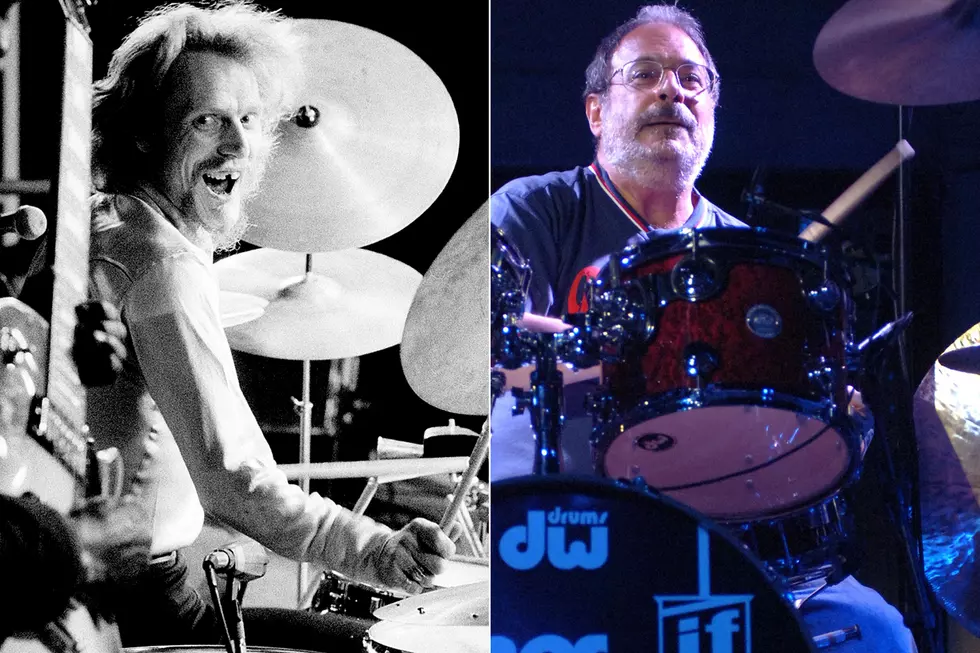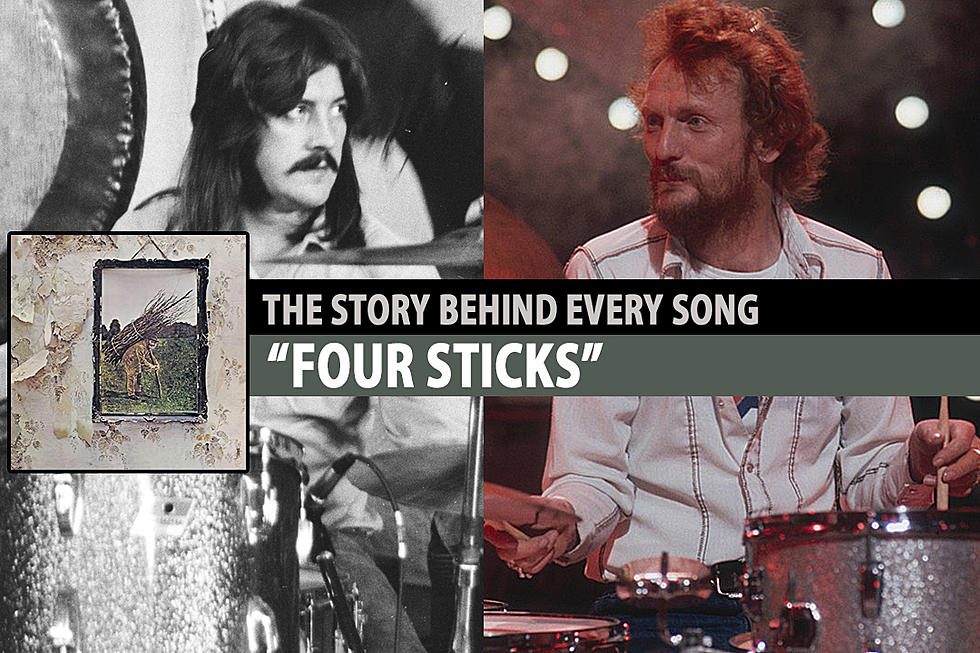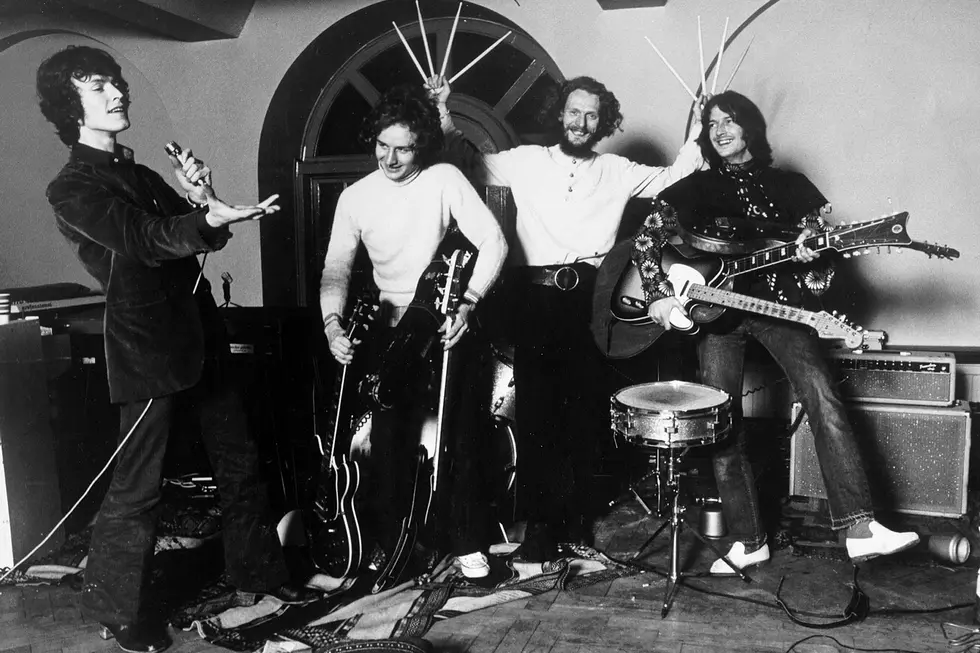
James Gang’s Jimmy Fox Recalls Opening for Ginger Baker and Cream
In the James Gang's early years, they played a number of shows with Cream. As drummer Jimmy Fox recalls now, he had hoped to spend some time hanging out with Ginger Baker and talk shop with him..
“It was easier said than done,” he tells UCR. “Other than a cursory nod, that was about all I ever got.”
Fox realized later that perhaps he should have mentioned Art Blakey -- “the password,” as he calls it, that may have broken the ice.
“[Baker] had a background that mirrored mine to some extent," Fox says. "I don’t mean to say that I played in that stratosphere, I never did. But he had that jazz background. He had been taught, and he had loved, learned and listened to all of the jazz guys -- all the same guys I grew up on. And of course, when Ringo [Starr] came around, I shifted gears. He didn’t shift gears. He just thought that stuff was trash, because those guys were unschooled.”
Even before the James Gang and Cream shared the stage, Fox was enthralled when he first got his hands on a copy of Fresh Cream in 1966. “The first Cream album was probably the greatest album I’d ever heard in my life at that time,” he recalls. “It was definitely pushing Beatles stuff, as far as what it meant. To hear three people play like that, and someone was willing to actually give them time to go into a studio and do it -- just incredible.”
When it came to the album's musicianship, Fox remembers the primary focus was on guitarist Eric Clapton at the time. “But being a drummer, it was impossible to ignore what Baker was doing,” he explains. “What he was doing was something similar to what [Keith] Moon did, which was to reinvent the instrument. No one played it like that until he did! It’s that simple!”
Fox knew of both Baker and Cream bassist and singer Jack Bruce before Cream, having followed their work as members of the Graham Bond Organisation, but when they eventually joined with Clapton, he knew, as a music fan, that he was in for the ride of his life, though he admits now that listening to the Graham Bond albums didn’t adequately prepare him for Cream.
“There’s no way you could have known from listening to Baker’s prior recorded work exactly what was there," Fox notes. "Graham Bond was a blues band, first and foremost. The work that was required of Baker in that band certainly didn’t allow him to stretch to what he became and probably already was. So when the first Cream album came out, I knew who he was. I didn’t know much about his abilities. I certainly didn’t know anything about his background.”
Fox zeroed in on Baker’s playing and musicality, as well as the way he blended styles and influences. “He found a way to marry that kind of finesse with that kind of thunder," he says. "That’s big stuff. When it comes to him as a drummer, there was never another like him, that’s for sure. As many guys that wanted to sound like Moon, there were that many at least that wanted to sound like Baker. I think the reason for that is there’s a delusion that if you just practice for about 60 or 80 years, you could play that stuff. Whereas, with Moon, that was never possible. So I think drummers tuned into Baker as something more aspirational. He was and remained one of a kind.”
Watch Ginger Baker Perform 'Toad' Solo
Fox calls Baker, Bruce and Clapton an “onslaught of musical sensory things," adding that "the issue with Cream is that I was completely wrapped up in all three of them.” A song like the instrumental “Toad,” which closed out the second side of 1967's Fresh Cream and became a sprawling centerpiece in concert, as documented on 1968's Wheels of Fire, gave fans a chance to focus on what Baker was doing.
The drummer was distinctive in rock 'n' roll, but less so in jazz, as Fox points out. “The difference was that he just hit much harder," he explains. "He hit like a rock 'n' roll guy. But rock 'n' roll wasn’t something that he lived and breathed. Music was. At that point, the stuff he was doing with Cream, you can label it in any way you want to label it, but the bottom line is that he was a jazz drummer playing rock 'n' roll. Or a jazz drummer playing blues, whatever you want. He had the full foundation of anyone who had studied those disciplines and was applying it to the music that he was involved with. That was a big deal.”
Fox watched the group live from the audience as a fan, and eventually from the side of the stage when the two bands played shows together. “They were overwhelming, absolutely overwhelming," he recalls. "I’ve never heard anything like this. They were faithful to the records, and then they were that much better for being live.
“If you had said on the day you first heard about Clapton, the first music you heard from Cream, you looked at Clapton and you thought, Well, yeah, some say he’s the greatest, he’s the greatest. End of story. He’s the greatest. This Jack Bruce guy, there was no one playing like him, let alone singing like him. And then there’s Baker. They were literally the cream of the crop.”
Still, Fox says, the songs were "just a vehicle to give them some room to open up. A few of them were very good. But it was an opportunity to play. That’s what Cream was. You can’t say that about the others. There were other values, there was entertainment, there was commerciality -- Cream had none of that. They were very non-compromising.”
Top 100 '60s Rock Albums
More From US 103.1 FM










